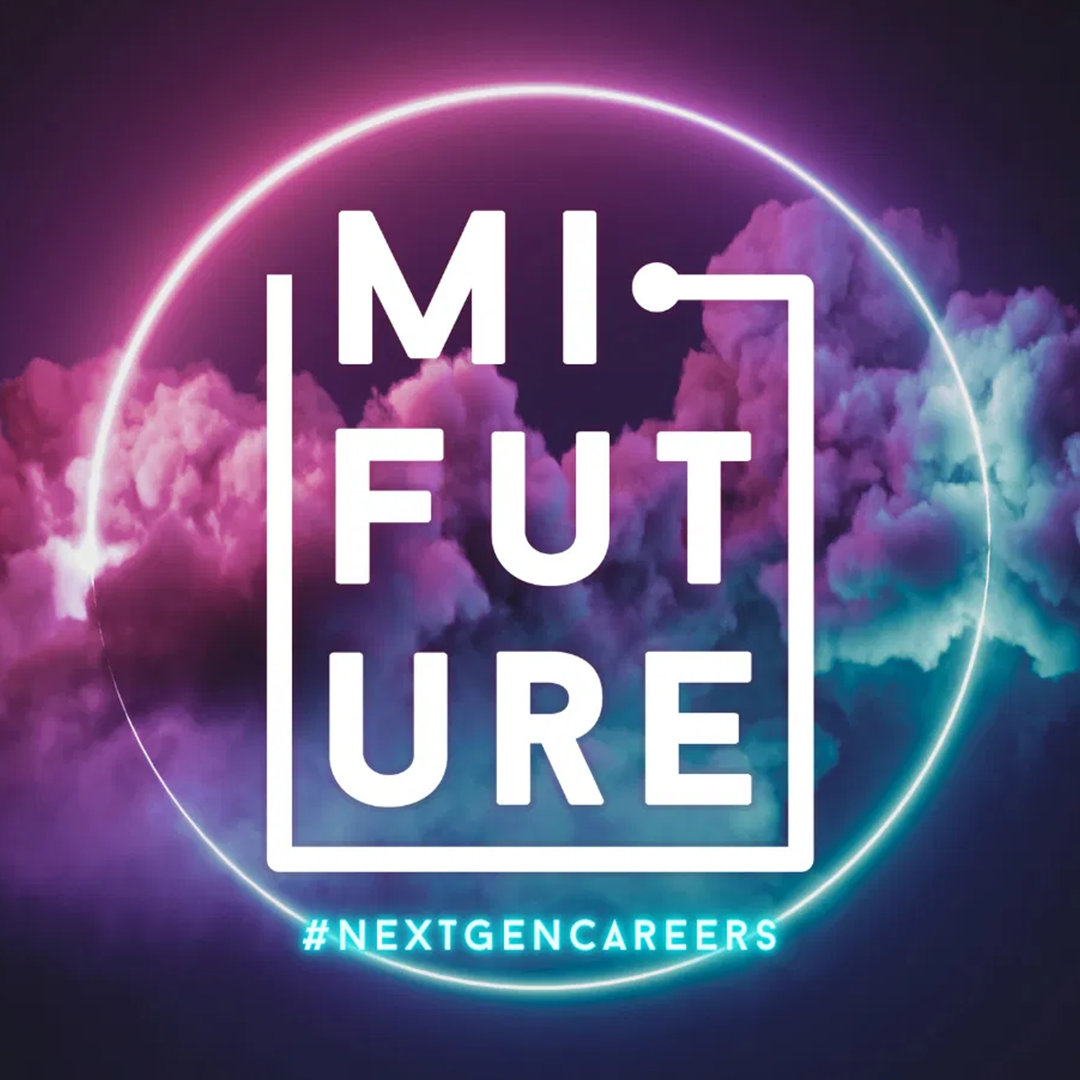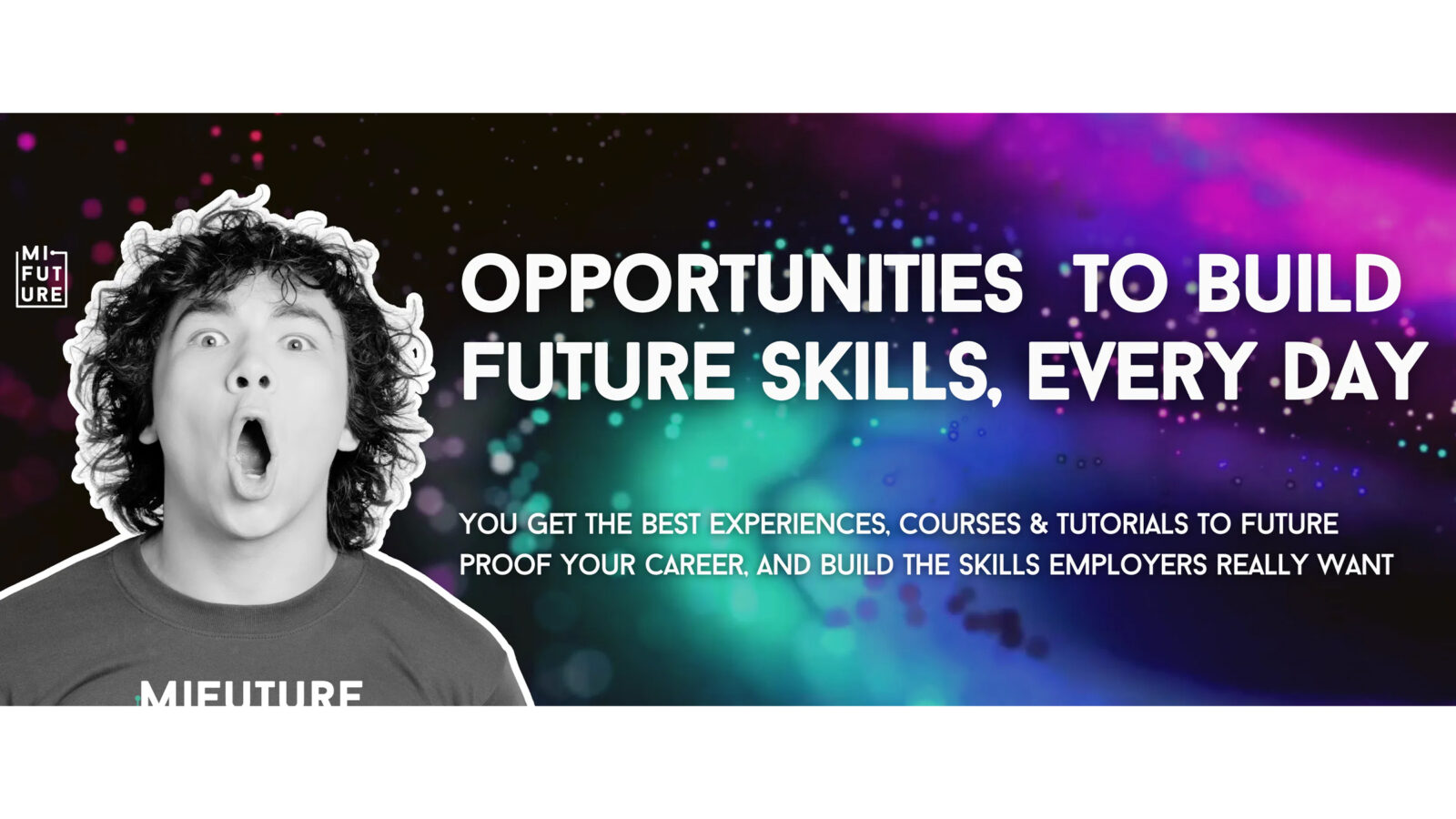miFuture
We recently ran a user feedback study for miFuture, an organisation that helps young people make informed decisions about careers and connects them with opportunities to build in demand skills. They had produced a prototype of their new service, ‘Skill Bursts’, that utilised gaming principles to test core skills and quickly enable young people to identify how their skills could align to specific, in demand career pathways.
We were tasked with testing a prototype of miFuture’s new service offering with their key intended user groups and designed a protocol to enable this. We sought to gather insights on the functionality, content, general opinions and feedback to help inform further user centred development.
We worked with miFuture to define the two user groups they needed to prioritise for this work. We then set out to recruit 12 participants, an optimum number for a small, qualitive study of this nature to provide varied responses whilst being unlikely to produce repeat data. We found recruitment to be a challenge for this study; the user group requirements were quite detailed as we needed to engage young people in Wales at very specific stages of their life and career. We also required coverage of people with a significant drive to upskill themselves and move forward in their careers as well as those who lacked enthusiasm around work and career prospects. But we overcame these complexities by working with a trusted recruitment partner and ensuring regular communication with the miFuture team to ensure priority requirements were being met.

The sessions were conducted on a one-to-one basis online with the participants split into two groups of six. They began with an introductory semi-structured interview to gather contextual insights and first impressions. We then moved onto a structured demonstration of the Skill Bursts prototype where prompt questions were asked and feedback was gathered about participant perceptions, expectations and level of understanding of the proposed content. The session concluded with a round-up interview to summarise their thoughts and impressions as well as anything they believed could improve the service offer.
Analysis focussed on understanding if there were any differences between the two user groups, including their current situations and backgrounds, their willingness to upskill themselves through games and any commonalities in feedback. We also looked to ascertain users’ level of comprehension and perception of the Skill Bursts concept, their feelings towards the prototype content and any ways they believed it could be improved.
This project perfectly demonstrated how user experience feedback studies can be a fantastic means of sense-checking all aspects of a product or service ahead of the next stage of development. We were able to deliver fantastic insights for miFuture, which will ensure their final product fundamentally meets the needs and expectations of their core user groups. It provided insight into key features such as terminology, aesthetics, mental models, usability, and general market acceptance of the concept. Using this, we were able to make targeted recommendations for improvement.

From miFuture’s blog post: Community Update Q3 2024:
“User-centred design remains at the core of our development process. This approach ensures that our solutions are genuinely aligned with the needs and preferences of our users. [PDR] carried out unbiased evaluations without our involvement. This approach has given us a clearer picture of how users engage with the platform and where we can enhance the experience.
We’ve listened closely to user feedback, which highlighted the need for a stronger connection to education and careers... This insight is shaping how we approach our language and branding, ensuring it resonates deeply with our users.”
We are glad the user centric and unbiased assessment we provided for miFuture has helped them make key decisions and push the development of the Skills Bursts service forward.

